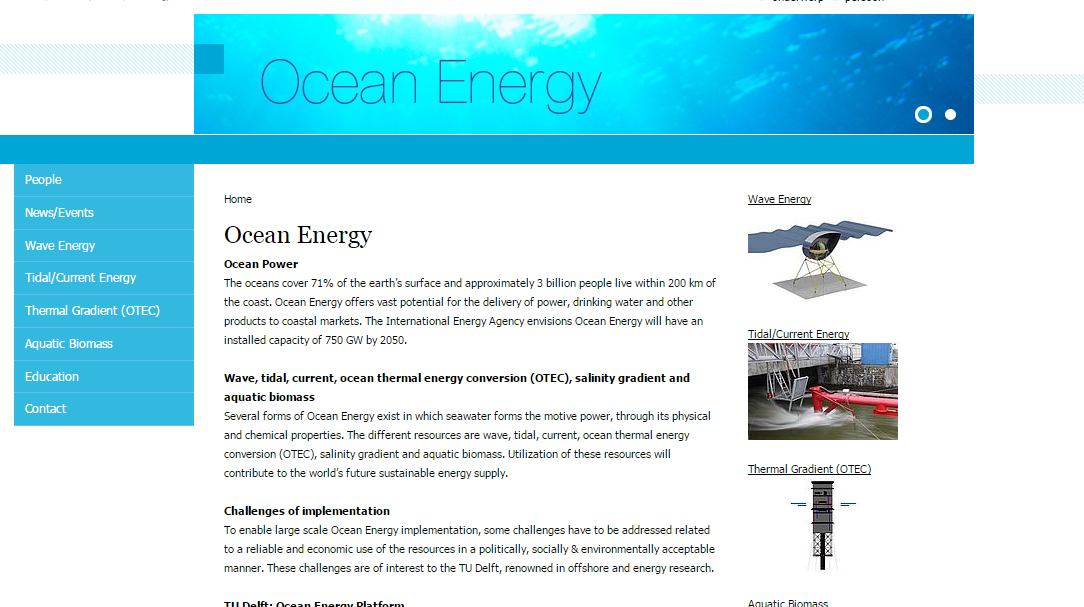TU Delft has launched an Ocean Energy Platform in response to increasing interest in the sea as a source of energy – whether wave, algal, tidal or thermal.
Over 700 scientists and several thousand students at TU Delft are currently working on one of the world’s great challenges: the future energy needs of the planet. And more and more students are choosing to study sustainable energies in particular. These include not only wind and solar energies, but also ocean energies, a range of physical and chemical processes, which start at the sea and lead to the electricity grid. “Many, many theses have been written about ocean energy here in Delft”, said Berend Jan Kleute, steering board member of the platform, “but this knowledge hasn’t really been used.” So earlier this month, the TU Delft Energy Initiative (DEI) decided to set up the Ocean Energy Platform, with the aim of clustering the various research groups, enabling knowledge and information about ocean energy to become more widely available.
Alongside the more familiar concept of tidal power, which is based on harnessing the energy produced by the ebb and flow of seas, researchers are also studying the potential of both wave and water-current energy. “The main challenge,” explained Kleute, “is that each wave has a different frequency, depending on the wind, so you need to come up with a way to convert all the different wave-shapes into electricity in a reliable and economic way.”
Ocean energy also includes Ocean Thermal Energy Conversion (OTEC), which uses the temperature difference between surface water and the colder deep-sea water to drive a turbine, connected to a generator, basically using the same principle as a steam engine. “This technology would be particularly applicable in the Tropics,” said Kleute, “where the temperature differences between surface and deeper waters are greatest.”
It’s also possible to produce electricity using the difference in salinity between sea and fresh waters. Called Reverse-Electro Dialysis (RED) this technology is already being tested at a pilot plant on the Afsluitdijk in the Netherlands, which can produce 50kW per hour. “RED technology is also potentially important for energy production in deltas around the world,” added Kleute.
Include research into the marine algae that make fuel precursors, and the seas would seem to have a lot offer the sustainable energy market. “The ocean is relatively predictable and reliable, and is available 24/7,” said Kleute, “so it can run a system at constant power output which makes it very interesting addition compared to wind and solar energy.”
Check the website out at: http://oceanenergy.tudelft.nl/



Comments are closed.